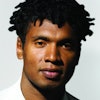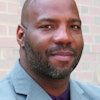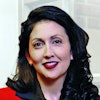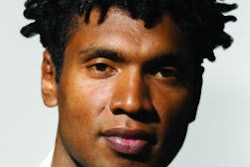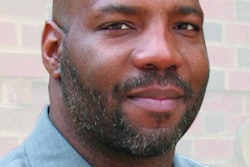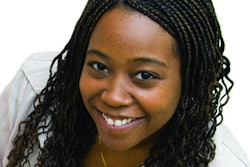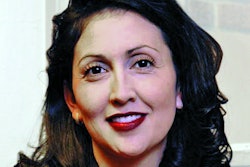During high school and college internships, Dr. Tejal Desai shadowed doctors treating diabetic patients. Their treatment typically consisted of daily insulin shots along with pinpricks to draw blood for glucose monitoring. Their pain made Desai wonder, can’t they get insulin another way?
Years later, she would devise an artificial pancreas to produce the insulin that a diabetic’s body could not. To do this, she would use micromachining techniques similar to those for creating silicon computer chips, making her a rising star in the fields of bioengineering and nanotechnology. The latter involves creating materials at the molecular scale, thousands of times tinier than a sugar cube.
Scientists had spent decades trying unsuccessfully to build a pancreas for implant. The problem was, their inventions could not withstand attack from the body’s natural immune system. Then came Desai. Her prototype, which included a thin silicon membrane and live pancreatic cells inside, let insulin filter out of its tiny pores while also blocking the immune system’s antibodies from entering and destroying it. The human body requires insulin to be able to use sugars and carbohydrates from food.
Although not currently available to patients, Desai’s device has been tested in rats and its technology licensed to a private company. Innovations such as the artificial pancreas have earned Desai a shower of accolades, including a 2000 National Science Foundation CAREER Award; a 2003 Eurand Grand Prize for outstanding research in oral drug delivery and 2006 Grand Prize for innovative approaches to drug delivery; and a 2006 Distinguished Engineering Alumni Award from the University of California, Berkeley.
Desai is grateful for the honors, learning resilience along the way. “You don’t get funded all the time, and you don’t get your papers accepted and published all the time.”
She cautions younger scholars, especially scientists, that the academic life “is like a marathon. It’s a long career trajectory. Not everything has to be done in a few years. Besides, you won’t enjoy the field if you burn out.”
Pacing herself at work is also important because Desai and her husband are raising three children ranging in age from 6 months to 5 years.
Since joining the University of California, San Francisco in 2006, Desai has taught courses such as “Principles of Tissue Engineering” and “Biological Aspects of Bioengineering.” She previously taught at Boston University and the University of Illinois at Chicago. She also co-edited an encyclopedia, “Therapeutic Micro/Nanotechnology.”
Currently, as director of UCSF’s Laboratory of Therapeutic Micro and Nanotechnology, Desai oversees a team of graduate students conducting more drug delivery research and trying to regenerate different types of body tissue. She was drawn to UCSF because she could work more closely with clinicians and basic scientists. UCSF, which offers graduate- level education in life sciences and health professions, has a medical center and a children’s hospital, among other health care affiliates.
Despite private sector job prospects, Desai went straight from graduate school to the professoriate. “I like the flexibility to research, to teach, to mentor. As long as you stay relevant in the field, you can pursue anything you’re interested in.”
She also enjoys her K-12 outreach, especially introducing girls to science. Lately, she has focused on seventh- and eighth-grade girls, explaining her job at career day events and doing science experiments with them.
“When I met her, I wondered if she was made by a computer because she is picture perfect in every way,” says Dr. Mauro Ferrari, director of the nanomedicine division at the University of Texas Health Science Center at Houston. Ferrari was Desai’s dissertation adviser. “She’s not only talented but truly compassionate.”
Title: Professor of Psysiology, Bioengineering and Therapeutic Micro and Nonaotechnology; Co-chair, UCSF / University of California, Berkeley, Joint Graduate Group in Bioengineering
Education: Ph.D., Bioengineering, University of California, San Francisco and University of California, Berkeley; Sc.B, Biomedical Engineering Brown University

